Astronomy
-
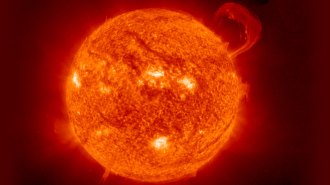 Astronomy
AstronomyNeutrinos hint the sun has more carbon and nitrogen than previously thought
Scientists still don’t know the sun’s exact chemical composition, which is crucial for understanding the entire universe. Neutrinos will help.
By Ken Croswell -
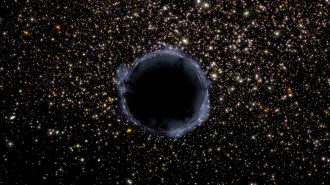 Astronomy
AstronomyA celestial loner might be the first known rogue black hole
The object could be the first isolated stellar-mass black hole identified in the Milky Way — or it might be an unusually heavy neutron star.
-
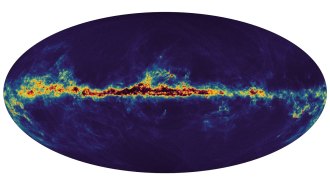 Astronomy
AstronomyNew Gaia data paint the most detailed picture yet of the Milky Way
Gaia’s new data can tell us about galaxies the Milky Way has swallowed, the young solar system and asteroids that could hit Earth.
By Asa Stahl -
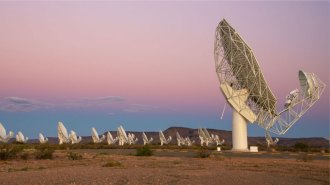 Astronomy
AstronomyA newfound, oddly slow pulsar shouldn’t emit radio waves — yet it does
The highly magnetic neutron star rotates three times slower than the previous record holder, challenging the theorical understanding of these objects.
By Liz Kruesi -
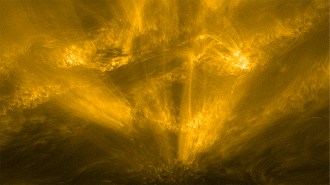 Astronomy
AstronomyThe Solar Orbiter spacecraft spotted a ‘hedgehog’ on the sun
In its closest flyby yet of the sun, the Solar Orbiter came within 48 million kilometers of our star, revealing new details.
By Liz Kruesi -
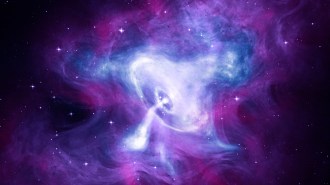 Astronomy
AstronomyPulsars may power cosmic rays with the highest-known energies in the universe
Earth is pelted by energetic particles from space. The source might be the magnetic remains of massive stars, a new study suggests.
By Liz Kruesi -
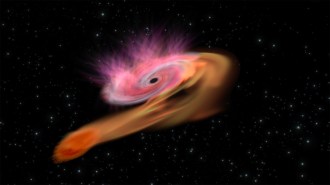 Particle Physics
Particle PhysicsHigh-energy neutrinos may come from black holes ripping apart stars
Where extremely energetic neutrinos originate from is a mystery. A new study supports the idea that “tidal disruption events” are one source.
-
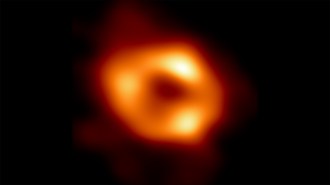 Astronomy
AstronomyWe finally have an image of the black hole at the heart of the Milky Way
Observations from the Event Horizon Telescope reveal the turbulent region around our home galaxy’s black hole, Sagittarius A*, in new detail.
By Liz Kruesi and Emily Conover -
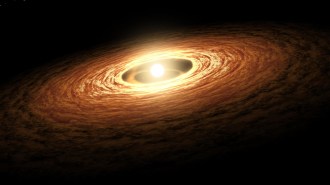 Astronomy
AstronomyThe sun’s searing radiation led to the shuffling of the solar system’s planets
As the young sun’s radiation evaporated gas from its surrounding disk, it triggered a jumbling of the giant planets’ orbits, simulations suggest.
By Liz Kruesi -
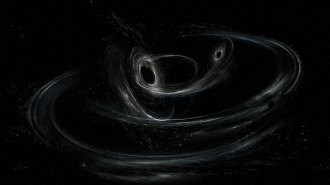 Physics
PhysicsGravitational waves gave a new black hole a high-speed ‘kick’
Ripples in spacetime revealed that two black holes united into one, which then sped off at around 5 million kilometers per hour.
-
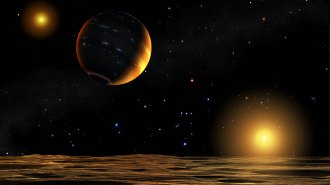 Astronomy
Astronomy‘Goldilocks’ stars may pose challenges for any nearby habitable planets
Orange dwarfs emit far-ultraviolet light long after birth, stressing the atmospheres of potentially life-bearing worlds.
By Ken Croswell -
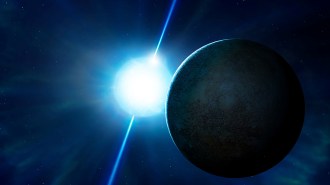 Astronomy
AstronomyCrumbling planets might trigger repeating fast radio bursts
Mysterious blasts of cosmic radio waves might be due to planets sweeping extremely close to their host neutron stars.
By Liz Kruesi